IMSML Website Article 24/2025: MSN 02/2025 - Guidelines for the Application Process for Operating Bunkering Services 2025
Malaysian Shipping Notice (MSN) 02/2025, issued on 22 January 2025, effectively cancels the following previous notices (see Paragraph 4):
[1] MSN 30/2011;
[2] MSN 03/2014;
[3] MSN 08/2014.
The new MSN 02/2025 fills in the gaps contained in the following statutory regulatory provisions (see Paragraph 1):
[1] Merchant Shipping Ordinance 1952, Section 449;
[2] Petroleum (Safety Measures) Act 1984, Section 9(1) and Section 11(1).
MSN 02/2025 contains ‘Guidelines’ that outline the procedure for applying for bunkering services through out Malaysia, see Paragraph 2. These guidelines are issued in Bahasa Malaysia and this article will outline the process in English (ie the translation has been carried out by the author).
What is the official name of the ‘guidelines’? It is known as Guidelines for the Application to Carry Out Bunkering Services (Preparation of Bunkering Services for Ships) 2025.
What is the territorial application of these ‘guidelines’? Bunkering activities in Malaysian waters only, see Paragraph 1.
What is the implication of a failure to comply with the Merchant Ordinance 1952, Section 449? The shipowner or the Master (or any other persons involved) will be guilty of an offence, and subject to a maximum fine of RM5,000, see Paragraph 2(a).
What is the implication of failing to comply with the Petroleum (Safety Measures) Act 1984, Section 9(1)? It amounts to a criminal offence that is subject to a maximum fine of RM10,000. The petroleum that is the subject-matter of the offence can be confiscated and forfeited, see Paragraph 2(b).
What is the implication of failing to comply with the Petroleum (Safety Measures) Act 1984, Section 11(1)? A crime is committed by the Master that is subject to a maximum fine of RM20,000.
Must ships used in bunkering a victim be registered in the Marine Department’s records? Yes, via notification to the various branches of Marine Department office, see Paragraph 3.
Is having a domestic shipping licence a pre-requisite? Yes, and it must contain details on ‘bunkering activity’, see Paragraph 4.
What must be completed by the applicant before bunkering activity can be carried out? Undergo a module for bunkering activity under the Marine Department Information System (MMDIS), see Paragraph 6(a)(i).
Can the module be conducted manually (eg if the MMDIS is offline)? Yes, see Paragraph 6(b)(ii).
What details are required in the application form for bunkering activities? Appendix 1 which contains the application form conducting bunkering activities requires the following details:
[1] Name of the bunker supplier and her port registry;
[2] Name of the receiving vessel and her port registry;
[3] Location of the bunkering activity (ie whether within or outside the port limit);
[4] Date and time of the bunkering operations;
[5] Type or bunker supplied and its total weight in Metric Tonnes;
[6] Personal details of the ship’s representative (eg Name, IC No, Name and Address of Company, Telephone number, signature, date as well as time of application);
[7] Details of the Marine Department officer processing the application (eg Name, Signature, Date and Time of Approval, as well as receipt number)
What are the general conditions imposed on an approval for conducting bunkering activities? There are a dozen conditions listed in Appendix 1.
[1] Usage of Form JLM/BOM/MOHONBUNKER;
[2] Compulsory usage of Automatic Identification System (AIS) on the ship. Note that this must always be switched on and during bunkering activity;
[3] Compliance with all applicable Malaysian Laws in force during bunkering operations;
[4] Having a domestic shipping licence (DSL) which contains the description ‘Bunkering Activity’ and compliance with the rules of the Domestic Shipping Licensing Board 1981;
[5] Having a Petroleum Permit as stipulated in PART II, FORM A, Table Two of the Rules for Petroleum (Safety Requirements) for Transportation of Petroleum by Water 1985;
[6] Compliance with safety measures listed in the Guidelines of OCIMF (ie Oil Companies International Marine Forum), MARPOL 73/78 and International Bunker Industry Associates (IBIA);
[7] Shipowners and crews on board the ship should always be ready and cooperate with bunkering activities under the supervision of the regulators;
[8] A copy of the approval should always be kept for inspection by the regulators;
[9] The approval is non-transferable;
[10] The type of the tanker and the type of oil that could be carried as carried are subject to the MSN (ie Malaysian Shipping Notice) in force;
[11] The approval will be automatically revoked if the ship fails port state control or flag state control, or an applicable statutory certificate reaches its expiry date;
[12] Applicability of any additional conditions can also be appended to the approval.
Thank you for reading IMSML Website Article 24/2025
Stay tuned for the next IMSML Website Article 25/2025: MSN 02/2025 - Mulair Oleg (Suing as Master of the Ship ‘Oriental Dragon’) and Another v The Owners and/or Persons in Possession or Control of the Ship ‘Oriental Dragon’ of the Port of Panama (Brit UW Limited and Others, Interveners) and Another Case [2023] MLJU 3050: The Proper Date for the Conversion of the Equivalent in Ringgit Malaysia of Claims Made in Foreign Currencies
Signing-off for today,
Dr Irwin Ooi Ui Joo, LL.B(Hons.)(Glamorgan); LL.M (Cardiff); Ph.D (Cardiff); CMILT
Professor of Maritime and Transport Law
Faculty of Law
Universiti Teknologi MARA Shah Alam
Selangor, Malaysia
Tuesday, 17 June 2025
Note that I am the corresponding author for the IMSML Website Articles. My official email address is: uijoo310@uitm.edu.my
